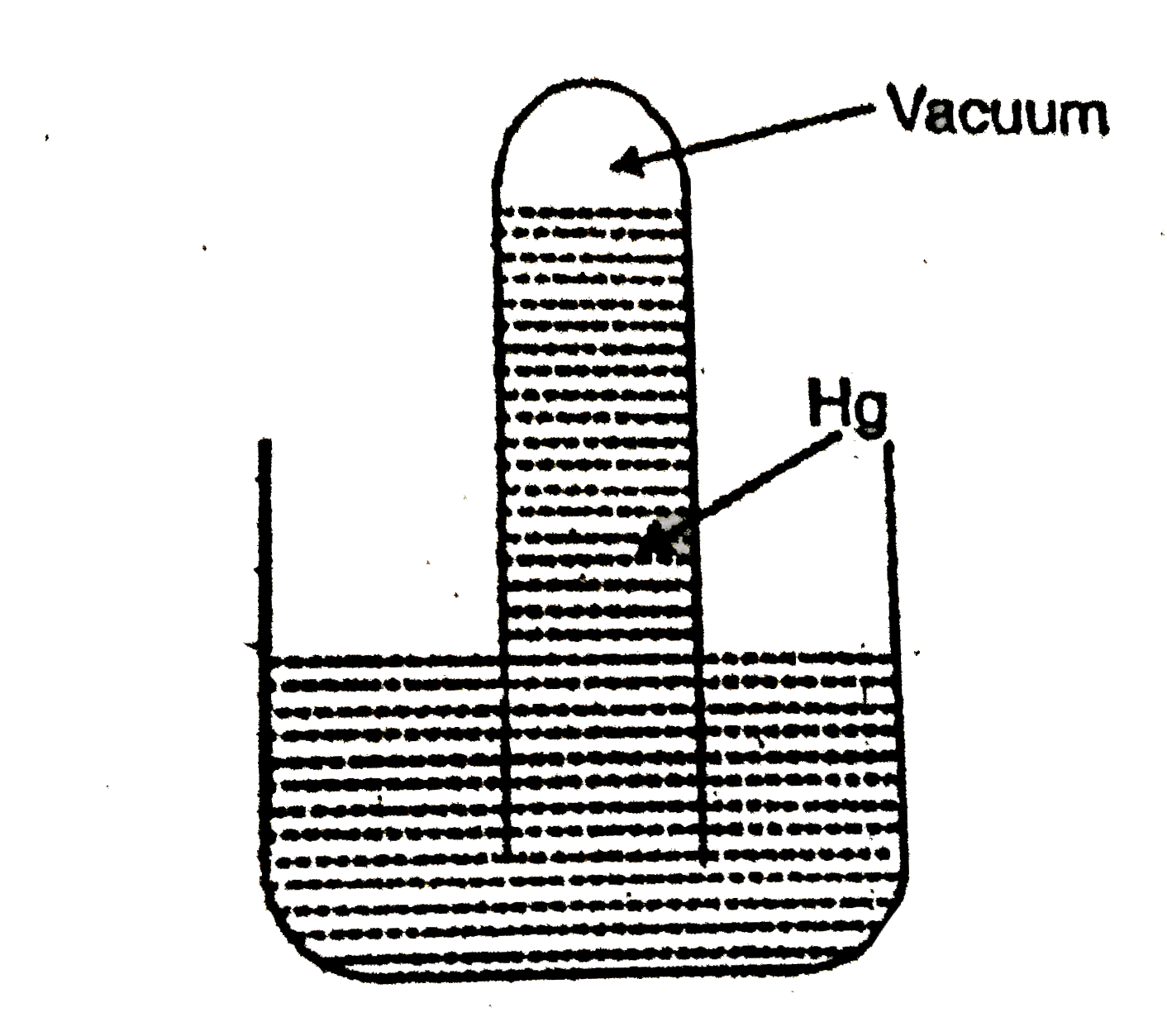A flask of mercury is sealed off at 20∘C and is completely filled with mercury. If the bulk modulus for mercury is 250 Mpa and the coefficient of volume expansion of mercury is 1.82×10−4/∘C and the expansion of glass is ignored, the pressure of mercury within flask at 100∘C will be
10 MPa
7.2 MPa
3.6 MPa
2.4 MPa
The correct Answer is:C
If V is initial volume then, The natural volume at T=100∘C will be
V(l+YΔT)
So , ΔV=−VYΔT
Also β=−VΔPΔV=−VΔP−VYΔT=ΔPYΔTor,ΔP=250×1.82×10−4×80,P2=3.6Mpa
Topper's Solved these Questions
- PROPERTIES OF MATTERBOOK - VMC MODULES ENGLISHCHAPTER - PROPERTIES OF MATTEREXERCISE - JEE Main (Archive) Level - 1
48 Videos
- PROPERTIES OF MATTERBOOK - VMC MODULES ENGLISHCHAPTER - PROPERTIES OF MATTEREXERCISE - JEE Advanced(Archive) Level - 2
1 Videos
- PROPERTIES OF MATTERBOOK - VMC MODULES ENGLISHCHAPTER - PROPERTIES OF MATTEREXERCISE - Level -1
90 Videos
- MOVING CHARGES & MAGNETISM BOOK - VMC MODULES ENGLISHCHAPTER - MOVING CHARGES & MAGNETISM EXERCISE - IN-CHAPTER EXERCISE-K
10 Videos
- QUIZBOOK - VMC MODULES ENGLISHCHAPTER - QUIZEXERCISE - PHYSICS
30 Videos
Similar Questions
Mercury has a small coefficient of volume expansion.
View SolutionCoefficient of volume expansion of mercury is 0.18×10−3/.∘C. If the density of mercury at 0∘C is 13.6g/cc, then its density at 200∘C is
View SolutionA flask of volume 103 cc is completely filled with mercury at 0∘C The coefficient of cubical expansion of mercury is 180×10−6/∘C and heat of glass is 40×10−6/∘C. If the flask in now placed in boiling water at 100∘C how much mercury will overflow?
View SolutionA glass flask of volume one litre at 0∘C is filled, level full of mercury at this temperature. The flask and mercury are now heated to 100∘C. How much mercury will spill out if coefficient of volume expansion of mercury is 1.82×10−4/∘C and linear expansion of glass is 0.1×10−4/∘C respectively?
View SolutionCoefficient of apparent expansions of mercury is 0.18×10−3/0C. If the density of mercury at 00C is 13.6g/cc its density at 473K will be
View SolutionThe bulk modulus of mercury is 2.8×1010 N/m2 and the density is 13600 kg/m2. What is the speed of sound in mercury ?
View SolutionA glass cylinder contains m0=100g of mercury at a temperature of t0=0∘C. When temperature becomes t1=20∘C the cylinder contains m1=99.7g of mercury The coefficient of volume expansion of mercury γHe=18×(10−5/∘C Assume that the temperature of the mercury is equal to that of the cylinder. The coefficient of linear expansion of glass α is
View SolutionA glass cylinder contains m0=100g of mercury at a temperature of t0=0∘C. When temperature becomes t1=20∘C the cylinder contains m1=99.7g of mercury The coefficient of volume expansion of mercury γHe=18×(10−5/∘C Assume that the temperature of the mercury is equal to that of the cylinder. The corfficient of linear expansion of glass α is
View SolutionState true/false:
S1 : Hydrostatic pressure is a scalar quantity even though pressure is force divided by area and force is a vector quantity?
S2: A barometer made of a very narrow tube (see figure) is placed at normal temperature and pressure. The coefficient of volume expansion of mercury is 0.00018/.∘C and that of the tube is negligible. The temperature of mercury in the barometer is now raised by 1∘C but the temperature of the atmosphere does not change. Then, the mercury height in the tube remains unchanged.
S3 A block of ice with a lead shot embedded in it is floating on water contained in a vessel. The temperature of the system is maintained at 0∘C as the ice melts. When the ice melts completely the level of water in the vessel rises.

View SolutionA glass vessel of volume 100cm3 is filled with mercury and is heated from 25∘C→75∘C. What volume of mercury will overflow? Coefficient of linear expansion of glass =1.8×10−6/'∘C and coefficeient of volume expansion of mercury is 1.8×10−4/'∘C.
View Solution
